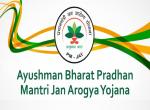In all the recent cases pertaining to high level corruption, whether be it the 2 G Spectrum allocation, the Commonwealth Games, the allocation of coal blocks, the appointment of a member of the Railway Board, etc., one common theme has been that decisions have been taken arbitrarily, contrary to rules and in violation of good administrative practices. In the case before the Supreme Court filed by Prakash Singh and others regarding police reforms, the allegation made is that government arbitrarily intervenes in the lawful working of the police and this is one of the main reasons why the police in India is ineffective, corrupt, politically biased and both people unfriendly and largely unaccountable. The prayer made before the Supreme Court is that the police should be insulated from unlawful pressures and influences and should be encouraged and in fact forced to function according to law. Thus, if corruption is to be stopped it becomes absolutely vital that arbitrariness in government must stop and instead we should return to reasoned rule of law.
In a society of laws, the first and foremost consideration is equality before law. This is enjoined by Article 14 of the Constitution. If there is equality before law then every citizen has equal rights and equal liabilities. A systematic violation of rights automatically proves that society no longer functions according to law. In a society of laws, no one, however powerful in politics, in government or in the economy, can deprive a person of his rights by misusing a government agency or by using the power of money to make officials act in favour of a person and with bias against some other person. In a society in which there is equality no one is the sovereign, suzerain or feudal lord of normal citizens, which means that whereas someone may enjoy authority and someone else may not, neither is the superior of the other and the person not having authority does not have to kowtow before a person having authority. The one in authority has still to function according to law and the rules, regulations, procedures and practices which emanate from it. Now it is a fact of which we can take notice that whereas equals do not pay tribute to each other, where there is a perception that someone is superior to others and can take decisions favouring someone and denying favours and rights to others, then an element of vassalage creeps in. When that happens, the one without authority becomes a vassal who tries to keep his overlord pleased, either by becoming his servant or paying him tribute which naturally would take the form of money or other valuables. A tribute is a token of submission and it is a well known fact that in India those who are in servitude do pay nazrana to those who are their superiors. Nazrana or tribute is the most humiliating form of a bribe because it recognises the superiority of someone else and the nazrana then becomes a means of ensuring that the superior is at least benign. It is only in a society of laws that everyone is equal and nazrana will not be necessary, nor will be paid.
India is not a society of equals and anyone who has even a little brief authority can become a target for payment of nazrana. If, however, the officer in question who is in a decision making position is unable because of the rules to do undue favours or to unduly deny justice to an applicant, then the nazrana become irrelevant and will not be paid. From this emerges the suggestion, which is that look at every point of contact between government and citizens, remove rough edges and simplify rules, procedures, etc., to such an extent that a person entitled to a decision gets the decision, there is no delay because the person delaying exposes himself and is liable to punishment and there is no relationship of superior –inferior in the whole transaction. If an official cannot harm through delay and cannot avoid decision making under fear of punishment, then there is no question of any nazrana being paid.
The absence of nazrana means that the applicant and the decision maker are both at the same level. Now it is no longer a superior talking down to serfs. If both are equal, how can the officials extort money, which can be called jabrana, from a person whose application relates to that to which he is genuinely entitled? Once again, it is rules, regulations and procedures which will determine whether there is an environment in which extortion is possible, or there is an environment in which one’s official position cannot be used to decide matters arbitrarily and through this extort money for giving a favourable decision.
To have a society of laws what we need first and foremost is the framing and formulation of laws in a manner which is compatible with the Constitution and with the general concept of parliamentary democracy. In India at the level of the Union it is Parliament which legislates and at the level of the States it is the State Legislature. The National Capital Territory of Delhi is not a State but as per the Government of the National Capital Territory of Delhi Act 1991, Delhi does have a Legislative Assembly. Mutatis mutandis this assembly has powers of legislation under the State List and the Concurrent List of the Seventh Schedule of the Constitution. The least we can expect from our legislators is that they will ensure that legislative business is conducted strictly according to the Constitution of India and the tried and tested practices and procedures of Parliament and the State Legislatures in India. As stated earlier, it is only in a society of laws that we can have equality and it is only from equality that good government can flow which checks corruption , therefore, it is all the more important that the Legislature itself should be patently and actually seen to be functioning according to law. Articles 110 and 199 of the Constitution define a Money Bill and both state categorically that any Bill which requires appropriation of money out of the Consolidated Fund of India is a Money Bill. Under Article 117 a Money Bill, also deemed to be a Financial Bill, may not be introduced in the House of the People without the recommendation of the President in the case of the Union, with Article 207 having similar provisions relating to a Financial Bill being introduced in the Legislative Assembly, in which case, of course, the recommendation of the Governor is required. Section 22 of the NCT of Delhi Act takes exactly the same position, which means that a Bill which contains provisions whereby there would be expenditure from the Consolidated Fund of India would require the recommendation of the Lieutenant Governor before it can be introduced in the Legislative Assembly. Under section 22 (3) of the Act, the Legislative Assembly has no authority to pass such a Bill if the Lieutenant Governor has not given his recommendation. The Jan Lokpal Bill, which was introduced in the Delhi Legislature by the then government of Arvind Kejriwal, was automatically hit by the infirmity of not having been recommended by the Lieutenant Governor, despite the fact that the Jan Lokpal and his establishment would have required expenditure from the Consolidated Fund of Delhi by way of salaries, capital expenditure on the office and the myriad other expenses associated with a government organisation. To obstinately demand that the Bill be introduced and then enacted, despite this being in violation of specific provisions of the Government of NCT of Delhi Act and the Constitution of India, means that here was a government, wedded to removal of corruption and causes of corruption, including arbitrariness in decision making, insisting that so far as its sponsoring of legislation is concerned, the law did not apply. If this is not the height of lawlessness, of utter contempt for law, of arbitrariness unbound, what is it? Can such an attitude actually give us a government which promotes the rule of law and thereby brings corruption under control? Therefore, far from being a party which wants to eliminate arbitrariness from decision making and thus ensuring that one of the root causes of corruption is removed, AAP is in fact the major promoter of eliminating the rule of law and opening the flood gate for arbitrariness. It is totally unacceptable that my arbitrariness is good but your arbitrariness is bad. All arbitrariness is bad and if there is insistence on pushing only one point of view, then it is also undemocratic. The whole Delhi drama is based on creating an environment in which every other point of view is suppressed and eliminated, leaving only the single point programme of the Jan Lokpal in the field.
Any government worth its salt should systematically set its nose to the following things: Create an environment in which the feudal culture which pervades our society is eliminated. This would include not making one’s obeisance to the politically powerful so that the need to pay tribute or nazrana is eliminated. Even a beginning cannot be made to the elimination of corruption till we completely remove the very relationship which leads to the payment of nazrana.
Proceeding from this, the government has to systematically review all areas of contact between the citizen and government and its agencies and officials. The first objective should be to reduce these points of contact to a minimum and for that purpose all rules, procedures and practices would have to be painstakingly reviewed with the objective of making them so simple and so open that a person going before a government official knows that his work can be done only if it falls within the four corners of what is permissible by law. A shortcut is not available, which means that bribing an official would be a futile exercise because even with malice aforethought that official cannot give a favourable decision contrary to rules. This exercise should be followed by a detailed study of how files move. If movement is smooth, time bound and follows a defined trajectory, then government’s work will proceed apace. People can then expect just and timely decisions. If an automobile factory’s assembly line can be programmed and then monitored, why is this not possible in the case of the manner in which government functions? A major cause of corruption would disappear if government work proceeded smoothly. Permit delay and we invite corruption.
From procedures we have to come to people, that is, officials. If one is to provide good government, one has to ensure that government officials are properly trained and oriented both for the job they are required to do and the people whom they are required to serve. For government servants to be made to do their duty they have to be trained and continue to be trained, mentally attuned to being people friendly, professionally competent, assigned very specific duties, with their performance being quantified and systematically monitored. This would help in identifying those who are genuinely servants of the people, those who are slackers and those who deliberately use their office for personal gain. Therefore, accountability must also be fixed and, perhaps, it is at this stage that a Lokayukt, a Lokpal, or an Ombudsman would have a vital role. This is not to diminish the role of the person to whom one can go with a complaint or who has the authority to monitor and evaluate performance and thereafter take suitable remedial action. However, this would be the last link in the chain of government which ensures the smooth and efficient functioning of the Executive and the timely delivery of services of government to the people. If there is good government, there may not be any role for the external monitor, who seems to be the only panacea offered by Aam Aadmi Party. Had it been otherwise, the party would have gone about the business of restoring good government before launching into the next stage of legislation for an external monitor. Had the government functioned logically and step by step it would not have faced any difficulty in the matter of legislation introduced at the appropriate time. In a parliamentary democracy, there are no shortcuts and every shortcut drives one more nail into the coffin of democracy. I hope Kejriwal and those who surround him eventually wake up to the fact that it is decline of the rule of law which has brought us to such a sorry state and it is only by returning to the rule of law that India will get good government, a corruption free society and the promotion of the welfare of the people. Remember the story of the tortoise and the hare? There is a great deal to be said for hastening slowly.
Published Date: 24th February 2014, Image source: http://www.newswala.com









Post new comment